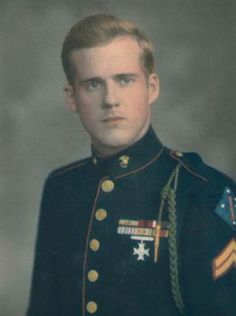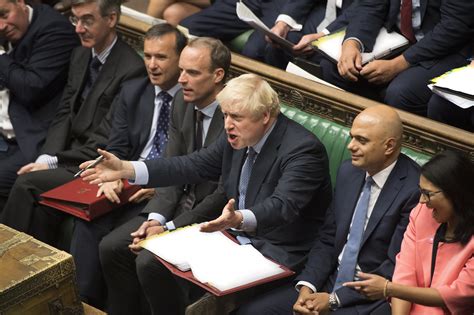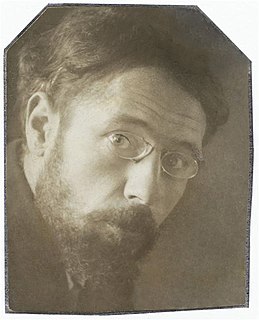A Quote by Eugene B. Sledge
To the non-combatants and those on the periphery of action, the war meant only boredom or occasional excitement, but to those who entered the meat grinder itself the war was a netherworld of horror from which escape seemed less and less likely as casualties mounted and the fighting dragged on and on. Time had no meaning, life had no meaning. The fierce struggle for survival in the abyss of Peleliu had eroded the veneer of civilization and made savages of us all.
Related Quotes
War! When I but think of this word, I feel bewildered, as though they were speaking to me of sorcery, of the Inquisition, of a distant, finished, abominable, monstrous, unnatural thing. When they speak to us of cannibals, we smile proudly, as we proclaim our superiority to these savages. Who are the real savages? Those who struggle in order to eat those whom they vanquish, or those who struggle merely to kill?
It takes a disciplined imagination to acknowledge that the less personal savageries of bombs, missiles, artillery and heavy weapons are, to those blown to smithereens, also barbaric. The main horror of what the coalition is doing is not a matter of the occasional soldier who, in the heat of battle, commits a war crime, but the steady destruction rained on cities, villages, the Iraqi people. This violence is wreaked calmly, from a distance, within the rules of engagement. The war itself is the American war crime.
let us thank God for having made us this gift of death, so that life is to have meaning; of night, that day is to have meaning; silence, that speech is to have meaning; illness, that health is to have meaning; war, that peace is to have meaning. Let us give thanks to Him for having given us weariness and pain, so that rest and joy are to have meaning. Let us give thanks to him, whose wisdom is infinite.
Human life has no meaning independent of itself. There is no cosmic force or deity to give it meaning or significance. There is no ultimate destiny for man. Such a belief is an illusion of humankind's infancy. The meaning of life is what we choose to give it. Meaning grows out of human purposes alone. Nature provides us with an infinite range of opportunities, but it is only our vision and our action that select and realize those that we desire.
The war for our Union, with all the constitutional issues which it settled, and all the military lessons which it gathered in, has throughout its dilatory length but one meaning in the eyes of history. It freed the country from the social plague which until then had made political development impossible in the United States. More and more, as the years pass, does the meaning stand forth as the sole meaning.
What attracted me was less art itself than the artist’s life and all that it meant for me: the idea of creativity and freedom of expression and action. I had been attracted to painting and drawing for a long time, but it was not an irresistible passion; what I wanted, at all costs, was to escape the monotony of life.
What is a war criminal? Was not war itself a crime against God and humanity, and, therefore, were not all those who sanctioned, engineered, and conducted wars, war criminals? War criminals are not confined to the Axis Powers alone. Roosevelt and Churchill are no less war criminals than Hitler and Mussolini. England, America and Russia have all of them got their hands dyed more or less red - not merely Germany and Japan.
It were indeed to be wish'd that our art had been less ingenious, in contriving means destructive to mankind; we mean those instruments of war, which were unknown to the ancients, and have made such havoc among the moderns. But as men have always been bent on seeking each other's destruction by continual wars; and as force, when brought against us, can only be repelled by force; the chief support of war, must, after money, be now sought in chemistry.
If I wanted to be free, truly free, I had to choose. There were many points on the compass rose; I had to locate the few that were meant for me. Not any destination picked at random; I had to head for those that summoned me with a passion, for they were the ones that gave meaning to my life. I had to ignore the warnings of those who would tell me why I couldn't do what I wanted to do.
....I understood why those who had lived through war or economic disasters, and who had built for themselves a good life and a high standard of living, were rightly proud to be able to provide for their children those things which they themselves had not had. And why their children, inevitably, took those things for granted. It meant that new values and new expectations had crept into our societies along with new standards of living. Hence the materialistic and often greedy and selfish lifestyle of so many young people in the Western world, especially in the United States.
Billy Pilgrim had a theory about diaries.
Women were more likely than men to think that their lives had sufficient meaning to require recording on a daily basis. It was not for the most part a God-is-leading-me-on-a-wondrous-journey kind of meaning, but more an I've-gotta-be-me-but-nobody-cares sentimentalism that passed for meaning, and they usually stopped keeping a diary by the time they hit thirty, because by then they didn't want to ponder the meaning of life anymore because it scared the crap out of them.
In America, we then made a commitment, particularly after World War II with the GI Bill, to massively expand our commitment to college education, and that meant we had more engineers and we had more scientists and that meant we had better technology, which meant that we were more productive and we could succeed in the global marketplace.



































